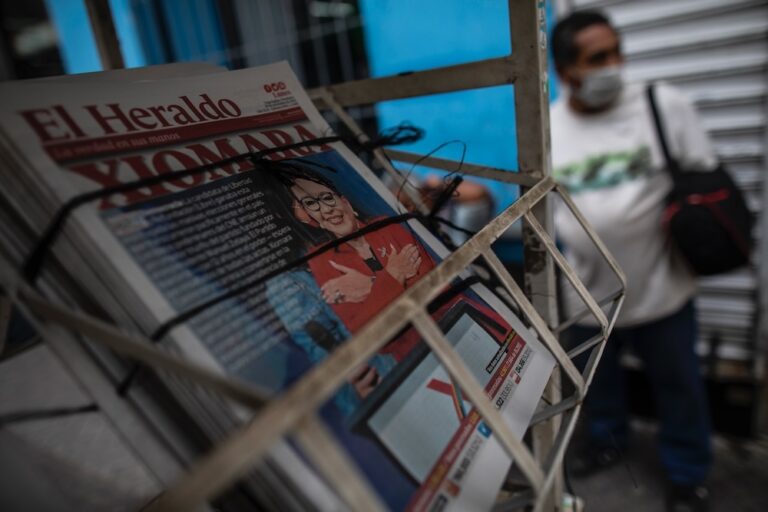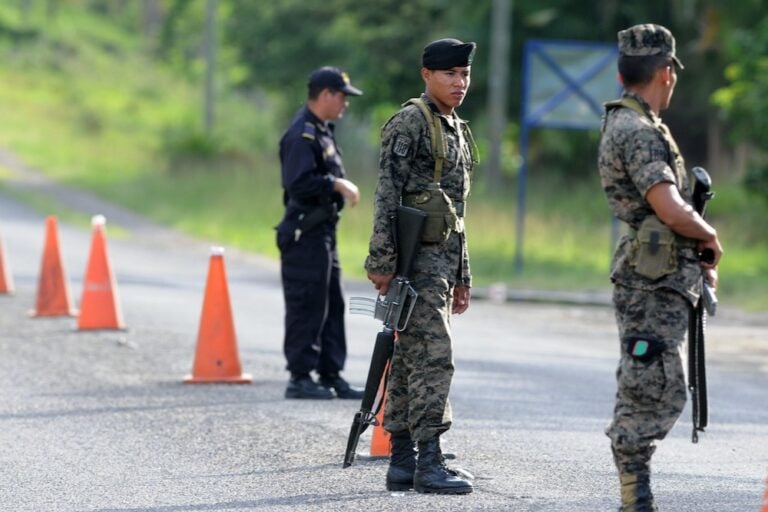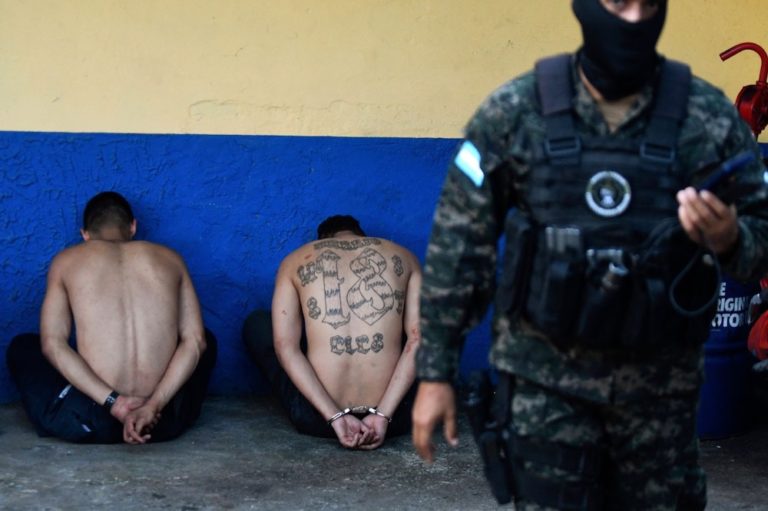Gilda Silvestrucci, host of the "En la Plaza" programme on Radio Globo, was followed and received threatening phone calls.
(C-Libre/IFEX) – Tegucigalpa, Honduras, 23 January 2012 – Journalist Gilda Silvestrucci denounced the fact that she has been followed and received threatening phone calls. She is the host of the “En la Plaza” programme, broadcast Monday to Friday on Radio Globo.
According to the journalist, during one of the calls she was told: “We already know that you have three children and the oldest one is fifteen. Right now you are walking down the street with your seven-year-old son while the oldest girl is in your home, taking care of the one-year-old. We are going to kill you.”
The journalist immediately hung up but then got a second call from the same number. One of her colleagues responded and berated the unidentified caller for the cowardly way in which Silvestrucci and her family were being threatened.
When the journalist called her home, her oldest daughter told her that a man had telephoned to inquire what time Silvestrucci normally went home.
A few days prior, the journalist’s mother had also received a call from someone requesting the Silvestrucci’s mobile phone number and information on the journalist’s schedule and places she frequents.
Silvestrucci is an active member of the women’s collective “Periodistas por la Vida y la Libertad de Expresión” (“Journalists for Life and Freedom of Expression”). On 21 December 2011, the collective filed a formal complaint with the Human Rights Prosecutor against President Porfirio Lobo Sosa, the Armed Forces Chief of Staff, General René Arnoldo Osorio Canales, and General Andrés Felipe Díaz, Chief of the Presidential Guard. The officials are accused of abusing their authority and violating a number of rights upheld by the Constitution.
A few days after the complaint was filed, Silvestrucci was heading to work in a taxi when the taxi driver informed her that they had been followed by another vehicle since they left her house. Luckily, the taxi driver was able to dodge the vehicle that was pursuing them.
C-Libre notes that since President Lobo Sosa came to power, 17 communications professionals have been killed. Thus far, none of the cases have been solved and therefore any potential links to the individuals’ profession cannot be discounted.
In the chapter on Honduras of its 2012 World Report, Human Rights Watch comments on the assassinations and attacks on journalists since Lobo Sosa came to power. The organisation concludes: “The individuals responsible for most of these crimes have not been identified or charged. In March 2011 the minister for human rights told the United Nations Human Rights Council that four cases were in court and six were still under investigation. Several government officials, including the minister of security and the minister of justice and human rights, have rejected suggestions that the killings were related to the victims’ professional activities.”
(Please note this is an abridged translation.)


